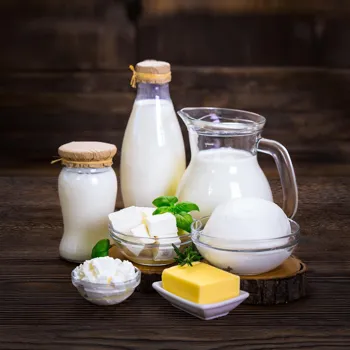Is Cheese Healthy? Exploring Dairy's Nutritional Value - Dive into the world of cheese to uncover its pros, cons, and more!
For many Indians, dairy products like milk, yogurt, and especially cheese, are
a regular part of their diet. From paneer tikka to cheesy dosas, cheese has found its way into our hearts and our plates. But amidst the deliciousness, a common question arises: Is cheese actually good for you?

Let's explore the nutritional pros and cons of dairy, with a special focus on our beloved cheese.
Dairy is rich in calcium for bones, but watch for lactose intolerance and saturated fat
Dairy, in general, is known for its calcium content. Calcium is super important for strong bones and teeth, preventing problems like osteoporosis later in life. Milk and yogurt are great sources, and cheese also offers a good amount, depending on the type.
Dairy also provides protein, which is essential for building and repairing tissues. Plus, it contains vitamins like B12, important for nerve function, and vitamin D, which helps your body absorb calcium. However, it's important to be aware of the potential downsides.
Some people are lactose intolerant, meaning they have difficulty digesting the natural sugar in milk. Also, many dairy products, including cheese, can be high in saturated fat, and consuming too much saturated fat can raise cholesterol levels.
Cheese is nutrient-dense, aids bone and muscle health, watch portion size
Cheese is concentrated source of nutrients and it delivers a good dose of calcium, protein, phosphorus and vitamin A. This helps in maintaining the health of bone, muscle and overall body functions.

It is a nutrient-dense food which offers benefits like strengthening of bones and improving muscle health. Phosphorus helps in energy production within the body. Remember that cheese is higher in calories and fat compared to milk or yogurt.
So, portion control is crucial to avoid unwanted weight gain.
Exploring cheese diversity and nutrition for informed choices
Now, let's dive into the world of cheese! There are countless varieties, and their nutritional profiles can vary significantly. For example, mozzarella tends to be lower in fat and sodium compared to cheddar. Parmesan, while high in sodium, is packed with calcium.

Cottage cheese is a good option for those looking for protein with lower fat. Processed cheese slices often contain higher amounts of sodium and additives, so it's best to choose natural cheeses whenever possible. Also, it’s important to remember that not all cheese is created equal.
Some varieties may be higher in sodium or saturated fat than others. Reading the nutrition labels carefully can help you make informed choices.
Choose lower-sodium, lower-fat cheeses for a healthier snack, pair with fruits or veggies
When choosing cheese, you have many options. As we mentioned, look for cheeses that are lower in sodium and saturated fat. Part-skim mozzarella, ricotta, and cottage cheese are generally healthier choices. If you enjoy harder cheeses like cheddar or Parmesan, consume them in moderation.
Experimenting with different types can also add variety to your diet while ensuring you are getting a range of nutrients. So, you can satisfy that cheese craving without compromising your health.
Remember to pair your cheese with healthy accompaniments like whole-grain crackers, fruits, or vegetables to create a balanced snack.
Manage lactose intolerance with dairy alternatives and digestive aids
Lactose intolerance is a common issue for many which creates some digestive discomfort. Symptoms like bloating, gas, and diarrhea can occur after consuming dairy. You can still enjoy the benefits of dairy by choosing lactose-free products, which have the lactose already broken down.
Alternatively, you can try smaller portions of dairy or consume it with other foods to aid digestion. Also, there are digestive aids available that contain lactase, the enzyme that breaks down lactose. It's important to listen to your body and adjust your dairy intake accordingly.
There are also fantastic plant-based alternatives to dairy, such as almond milk, oat milk, and soy yogurt, for those who want to avoid dairy altogether.
Cheese can be part of a healthy diet in moderation
Ultimately, whether cheese is healthy depends on individual dietary needs, preferences, and portion sizes. If you enjoy cheese, you can incorporate it into a balanced diet by choosing smarter options and practicing moderation.

Pay attention to your body's response to dairy and make adjustments as needed. It's always best to consult with a doctor or registered dietitian for personalized advice. For most people, dairy can be a nutritious part of a healthy eating plan.
It is definitely something that adds to the diet as opposed to taking away from it. So, embrace the cheesy goodness in moderation and enjoy.
AI Generated Content. Glance/InMobi shall have no liability for the content












